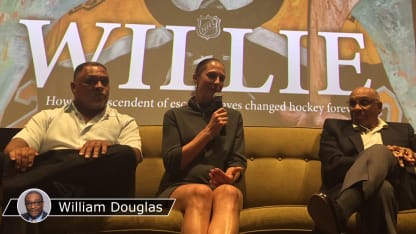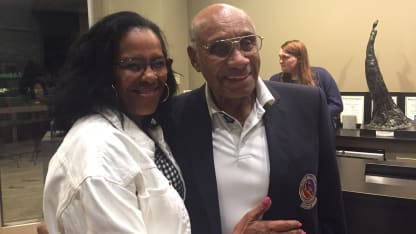Washington Capitals part-owners Sheila Johnson and Earl Stafford hosted the event, hoping to generate buzz for the film.
Johnson, who co-founded Black Entertainment Television and owns the Salamander Resort and Spa in Middleburg, Virginia, and Stafford, CEO and founder of The Wentworth Group LLC, a Virginia-based private equity and consulting firm, assembled an audience that resembled a who's who in the worlds of sports, politics, business and education.
Guests included Mona Sutphen, former White House Deputy Chief of Staff under Barack Obama; Clyde Williams, a former adviser to Obama and President Bill Clinton; John Thompson III, vice president of player development and engagement in Monumental Basketball; and Kenneth Shropshire, CEO of the Global Sports Institute at Arizona State University.
"This is such a diverse, well-educated, well-heeled crowd, and I think this will really show what a special movie this is. It's different than anything they've ever watched," Johnson said. "Hockey has never been on their radar screen, and I think by showing this movie it will now draw attention to hockey and draw attention to how great Willie O'Ree is. That's what's really important. I mean, this man is really the giant in hockey, as far as I'm concerned."
The documentary gives historical context and personal insights about the man who overcame racial prejudice and blindness in his right eye to become the NHL's first black player when he joined the Boston Bruins on Jan. 18, 1958, for a game against the Montreal Canadiens at the Forum.
"I thought it was an incredible film, a story that I'm ashamed I didn't know," said Thompson, a former Georgetown University men's basketball coach. "I learned so much about a man who broke barriers, who opened doors. And I think myself, along with a lot of people who are leaving here today, are going to champion not just this film, but champion Willie. It's an honor to be in his presence and an honor to start to learn his story."
The film reveals that O'Ree didn't just integrate hockey. He integrated his local barbershop while growing up in Fredericton, New Brunswick, after asking why he couldn't get his hair cut there like everyone else.



